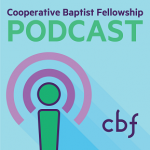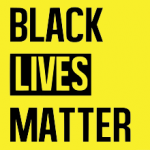By Aaron D. Weaver
“The aftermath of nonviolence is the creation of the beloved community, while the aftermath of violence is tragic bitterness.”
Dr. Martin Luther King, Jr. delivered this often-quoted message before the General Assembly of the National Council of Churches in St. Louis on December 4, 1957. It’s a message that he had previously preached during the Montgomery Bus Boycott, and it’s a message he would continue to share over the next decade.
Standing before leaders of the nation’s Protestant denominations, King framed his theological vision in the language of means-to-an-end philosophy, the actions necessary to achieve the goals of the civil rights struggle.
“The end is redemption,” King said. “The end is reconciliation.”
Protest was and is the means to this holy end. Protest, in its many different forms, was and is a means to awaken moral shame on the love-paved road to redemption and reconciliation.
“The nonviolent resister…realizes that non-cooperation and boycotts are not ends within themselves, they are merely means to awaken the sense of moral shame within the opponent,” King said.
Two years later, King elaborated in an address to the Montgomery Improvement Association in February 1960.
Protest is “merely a means through which we seek to awaken a sense of shame in the opponent and to lift him to a new level of his own humanity,” King said. “But the end which we seek is reconciliation. The end which we seek is the creation of the beloved community. The end which we seek to create is a society in which all will be able to live together and respect the dignity and worth of all human personality.”
As we celebrate the life and legacy of Dr. King on what would have been his 89th birthday, I’ve been reflecting on this call for courage, the call to awaken a sense of moral shame. Sadly, King’s call is increasingly difficult in our country where the capacity for moral shame is in question among some of the movers and shakers in society—pundits and personalities, public servants and even certain pastors.
In the aftermath of violence in Charlottesville, rather than moral shame we heard a message of “both sides.” Both sides were to blame we were told, and there were “very fine people” on the white supremacist side.
From a travel ban targeting Muslims to disparaging immigrants as criminals and rapists to inciting violence against protesters to removing protections for 800,000 young immigrants to racist remarks deriding immigrants from “s-hole countries,” the reasons and opportunities for moral shame are plentiful. Disturbing is the paucity of moral shame expressed from elected officials in these instances. Deafening is the silence. As Dr. King pointed out, “cowardice is as evil as violence.”
Yet, as followers of Christ, we don’t have the luxury of this type of partisan spin or immoral silence. We are called to protest for we are a protest people. Our genealogy as Baptists features a feisty tradition of dissent. We confess with the earliest Christians that Jesus is Lord. For the early church, this affirmation was deeply theological. But it was also political. It was statement of protest to declare Christ, not Caesar, was Lord. Being faithful to this confession means taking action. While we are free, we are not free to fail to act. Our shared confession that Jesus is Lord and commitment to the imago Dei—the image of God in all people—are the fuel that propel us forward.
“We often think of freedom from something, but freedom is also to something,” King told Montgomery boycott organizers at Holt Street Baptist Church in 1956. “[Freedom] is not only breaking aloose from some evil force, but it is reaching up for a higher force. Freedom from evil is slavery to goodness. And we must discover that freedom is more than a negative something. It is more than getting aloose from a negative, but it is becoming attached to a positive….We have a duty to be free.”
However, King emphasized that when you have a duty to be free, you have a duty to respect everyone. “That’s the meaning of freedom,” he noted.
“I don’t mean you have to respect their opinions,” King said. “I don’t believe in respecting everybody’s opinion. I don’t respect anybody’s opinion who thinks that I am supposed to be kicked around and segregated. I don’t respect their opinion. But I respect them as a personality, a sacred personality with the image of God within them.”
Because of these convictions, King emphasized that the “opponent” is not a group of persons—whether of different races, faiths, nor political parties. Protest should be directed at “forces of evil rather than persons caught in the forces.”
“It is evil that we are seeking to defeat, not the persons victimized with evil,” King said in an address in 1957.
The fight is between justice and injustice, the forces of light and the forces of darkness, King told a group of American Baptist pastors a year prior. “And so the aim must always be to defeat injustice and not to defeat the persons who are involved in it,” he said.
Love stands at the center of the path to redemption, reconciliation and the creation of beloved community. This type of love is agape—“the love of God operating in the human heart,” according to King.
As we celebrate Dr. King, let’s focus on living more fully into our callings to be a protest people, to be dissenters who stand for justice, fight the forces of evil, amplify the voices of the unheard, and embrace the duty to be free. And may we do all these with agape love, devoted to the means while remembering the end is redemption and reconciliation. The end is the creation of the beloved community.
As Dr. King declared almost 50 years ago in his final speech, we’ve got some difficult days ahead. But he also offered a hopeful challenge—a challenge that still rings true today:
“Let us rise up tonight with a greater readiness. Let us stand with a greater determination. And let us move on in these powerful days, these days of challenge, to make America what it ought to be. We have an opportunity to make America a better nation.”
Note: The views expressed here in columns and commentaries are solely those of the authors.
Interested in writing for CBF at Patheos? Submit your column idea to CBF Communications Director Aaron Weaver at [email protected].











